Tens of thousands attend march against antisemitism in London
Chief rabbi Ephraim Mirvis called for a ‘strengthening of community cohesion’ amid reports of a rise in antisemitism
Your support helps us to tell the story
From reproductive rights to climate change to Big Tech, The Independent is on the ground when the story is developing. Whether it's investigating the financials of Elon Musk's pro-Trump PAC or producing our latest documentary, 'The A Word', which shines a light on the American women fighting for reproductive rights, we know how important it is to parse out the facts from the messaging.
At such a critical moment in US history, we need reporters on the ground. Your donation allows us to keep sending journalists to speak to both sides of the story.
The Independent is trusted by Americans across the entire political spectrum. And unlike many other quality news outlets, we choose not to lock Americans out of our reporting and analysis with paywalls. We believe quality journalism should be available to everyone, paid for by those who can afford it.
Your support makes all the difference.Tens of thousands of people gathered in central London to march against antisemitism in what activists have called the largest gathering of its kind since 1936.
The demonstration organised by Campaign Against Antisemitism (CAA) drew a number of well-known figures, including former prime minister Boris Johnson.
The former PM said that he was attending in solidarity with Jewish people as he said recent pro-Palestinian protests in the capital had confirmed his belief of “the absolutely human necessity for Israel to exist”.
English Defence League founder Tommy Robinson was arrested at the march after he was escorted away by a large number of police officers. The force said organisers had raised concerns about his attendance in the run-up to the event, adding that when asked to leave he refused to do so.
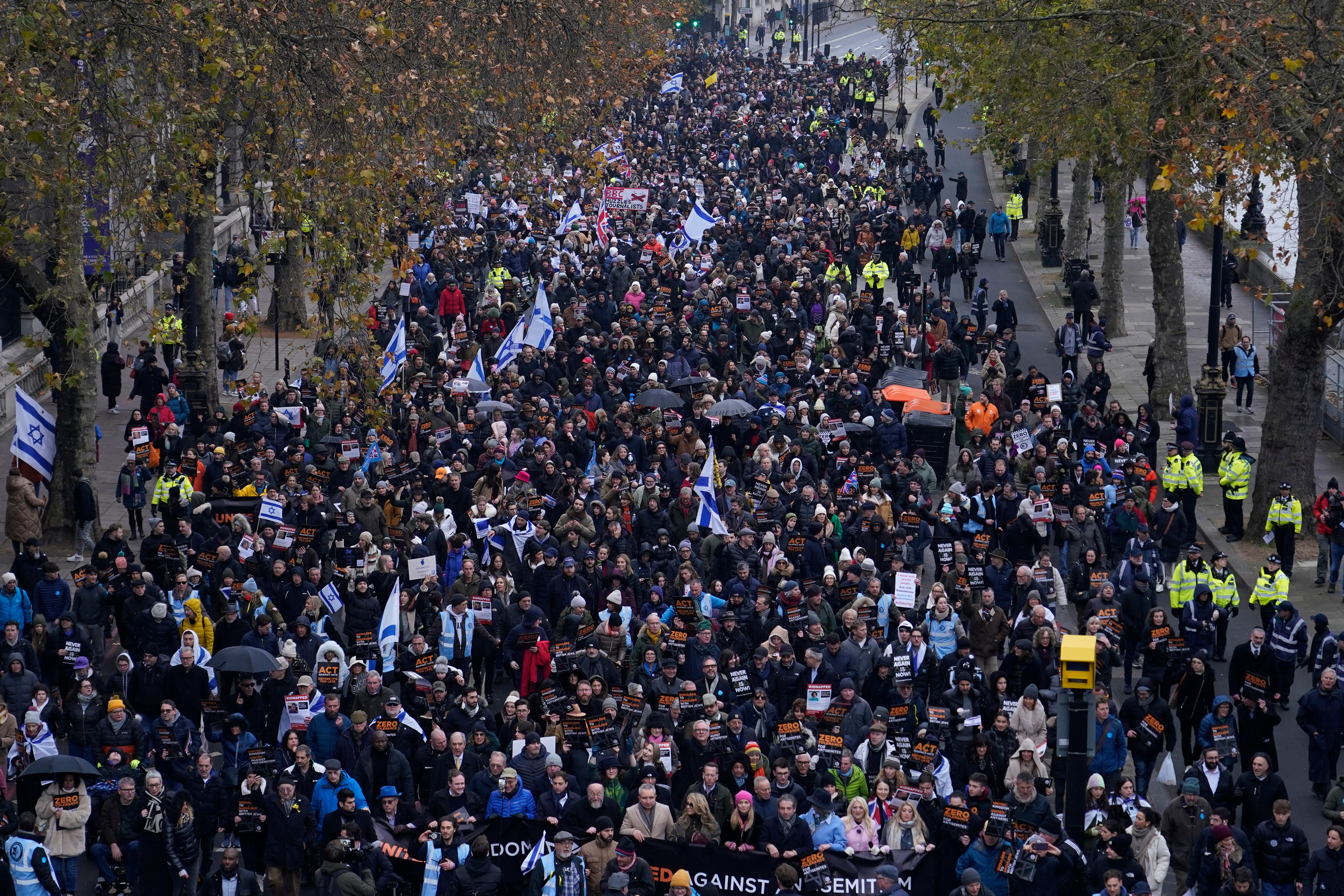
There was one other arrest during the event – a man was heard making antisemitic comments and was arrested on suspicion of a racially aggravated public order offence.
The otherwise peaceful event came as another group of Israeli hostages were released from Hamas on Sunday, weeks after the 7 October attacks saw hundreds of people held captive. Posters of missing hostages and flags of the state of Israel could be seen among the crowds as many chanted “Bring them home”.
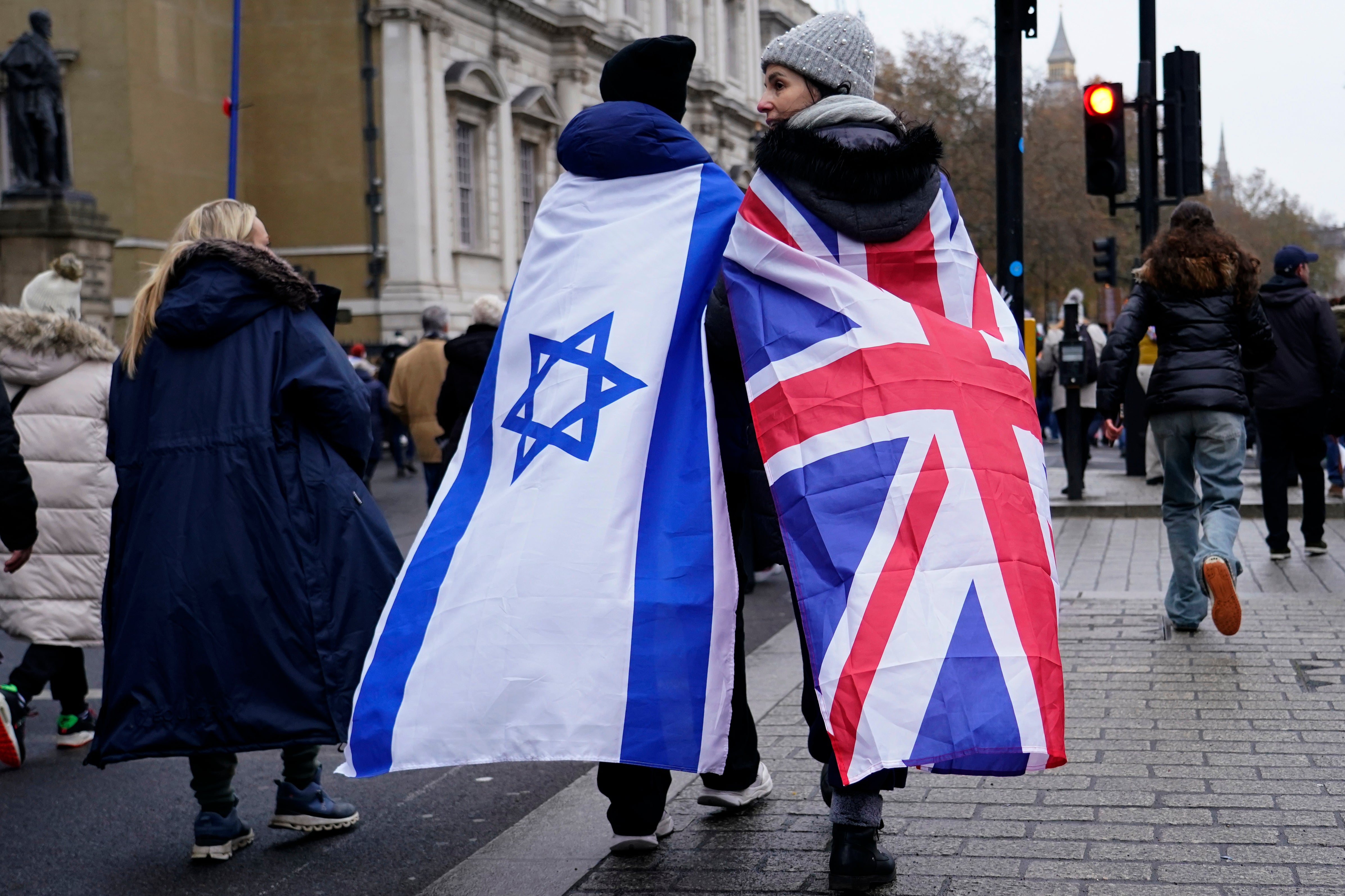
Organisers called the rally the largest gathering against antisemitism London had seen since the Battle of Cable Street in 1936, when hundreds of thousands of people blocked a planned march by Sir Oswald Mosley’s British Union of Fascists through an area populated by many Jewish families.
Mr Johnson compared antisemitism with “an old spore of a virus”.
“Whatever the rights and wrongs of what Israel has done, or is doing, I think that the antisemitism that we’ve seen in some of these marches around western Europe and further afield has really confirmed for me the absolute necessity, the human necessity for Israel to exist,” he told GB News.
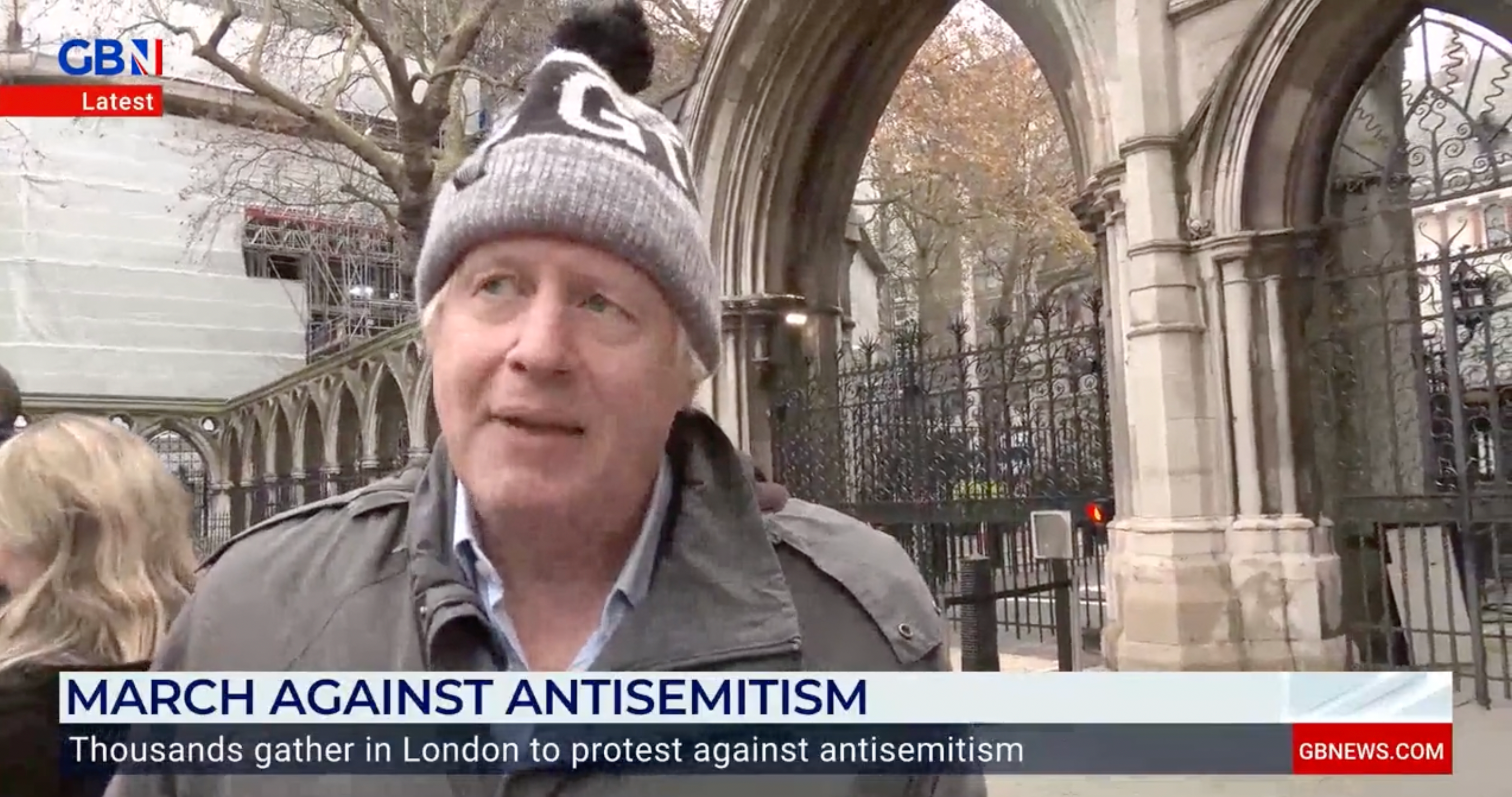
The protest finished at Parliament Square where a number of speeches were given, with immigration minister Robert Jenrick among the speakers addressing the crowd.
Gideon Falter, chief executive of CAA, condemned “appalling” signs he had seen at recent pro-Palestinian marches in London.
“Since October 7, antisemitic crime has surged in this country by over 1,000 per cent,” he said. “And indeed, as we saw yesterday, yet again, carrying placards showing a Star of David thrown in the bin with a caption that says ‘please keep the world clean’, messaging that would not have been out of place in 1930s Germany, it is appalling.”
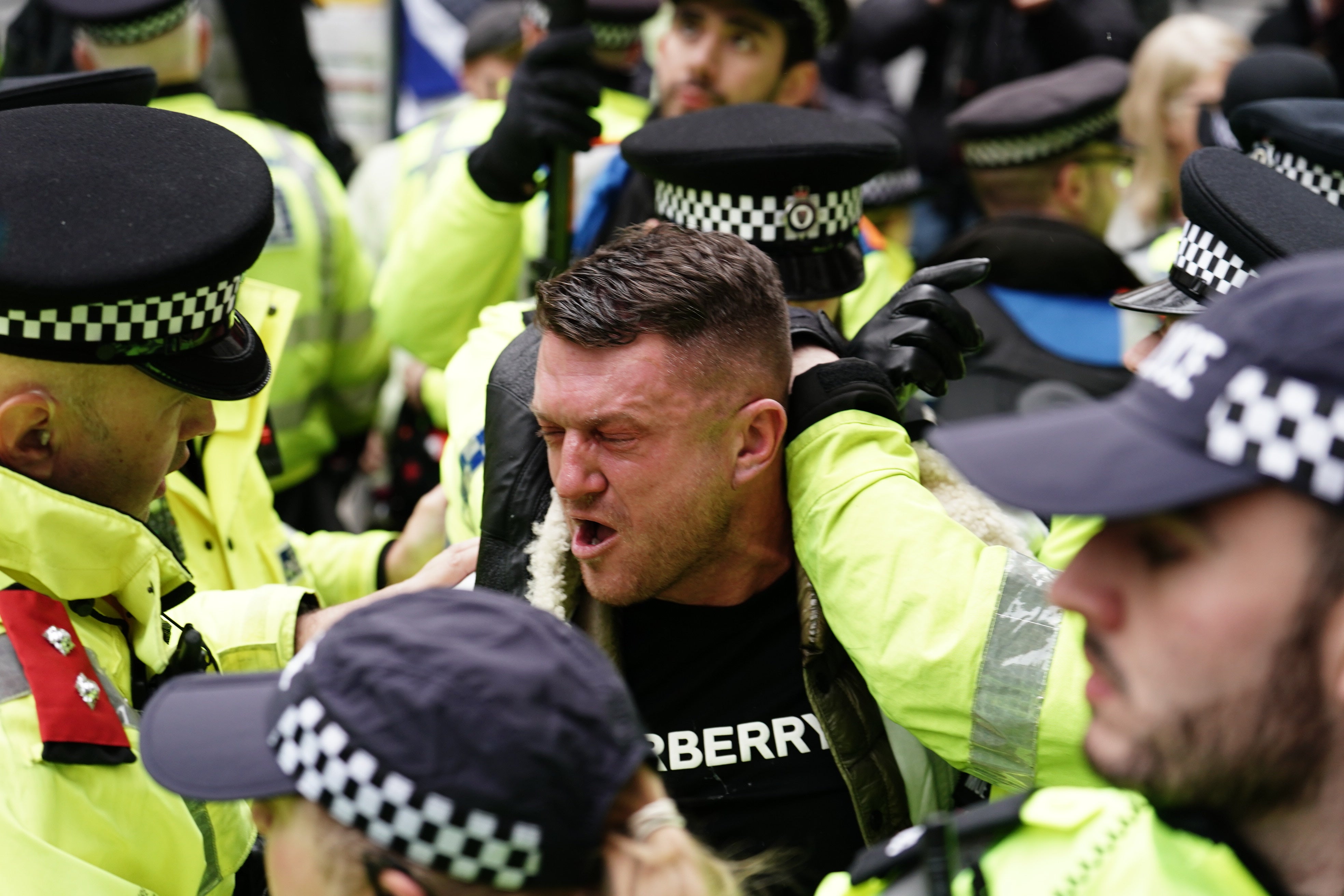
Chief rabbi Ephraim Mirvis said British Jews would not be “intimidated” by antisemitism. He said: “We call for a strengthening of community cohesion and we will forever be proud to champion the finest of British values.”
Speaking on behalf of the government, Mr Jenrick said the defeat of Hamas would be a “blessing for the world” as many chanted “bring them home” in a plea for hostages to be freed.
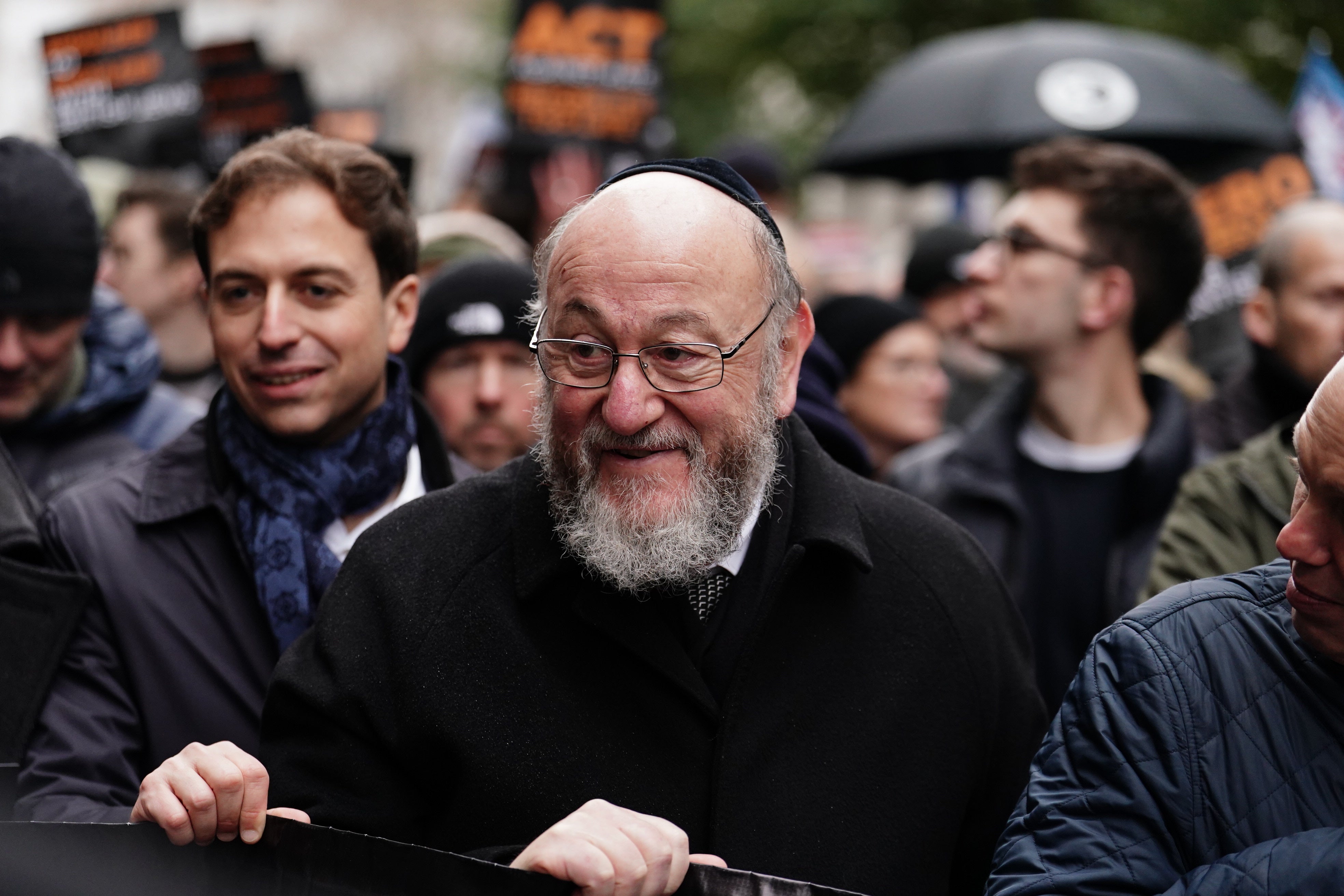
“Know your government will not rest until each and every one of them is back in the loving embrace of their families,” he added. “We stand with Israel.”
British celebrities in attendance included TV judge Robert Rinder, former Eastenders actress Tracy-Ann Oberman and Countdown’s Rachel Riley. They walked behind banners reading “United Kingdom united against antisemitism”.
However, at least one Jewish group said it refused to attend the demonstration due to concerns about the reason behind the march.
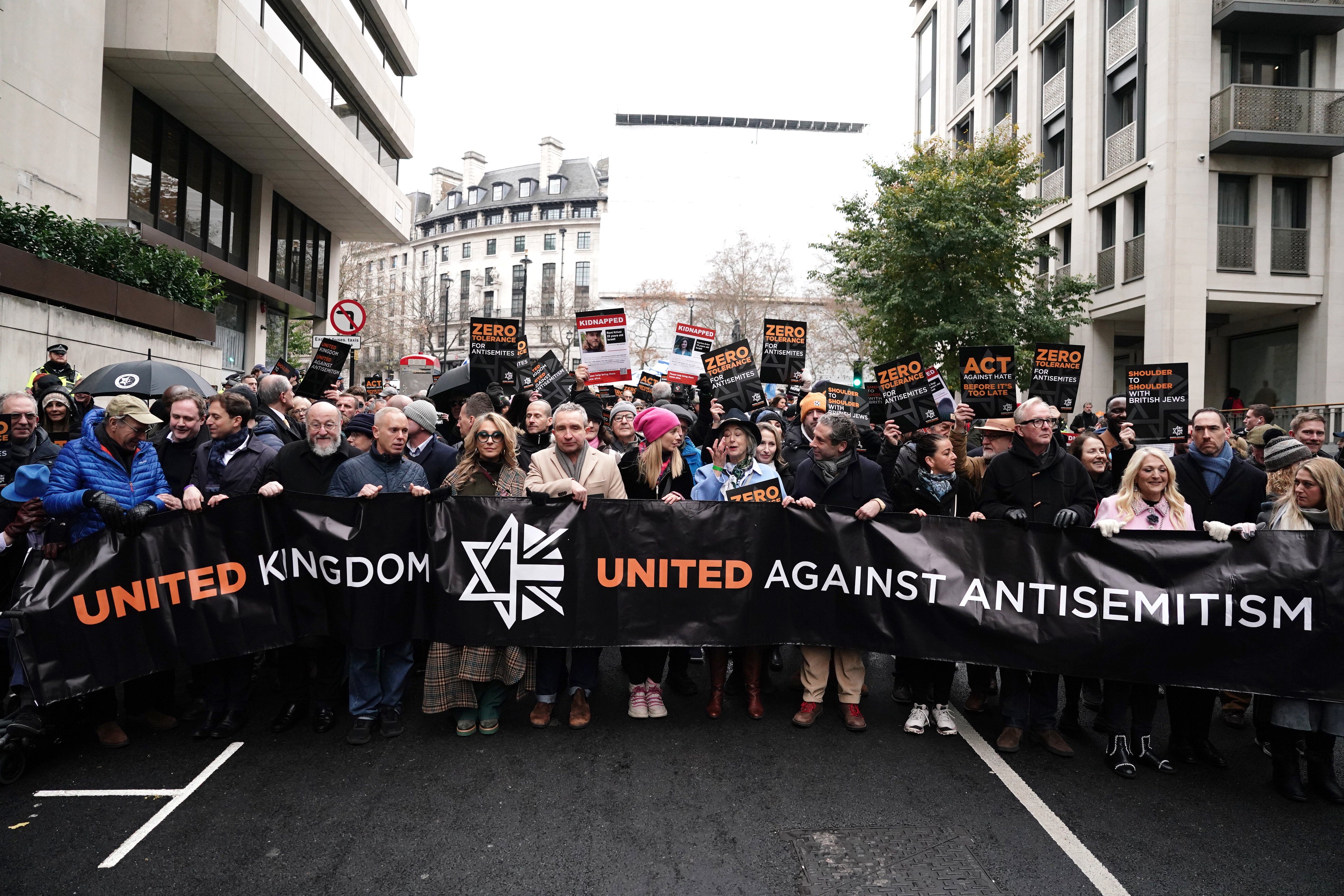
Na’amod, a group that opposes the Israeli occupation of the West Bank, said in a statement: “We know that many people marching will be doing so from a place of genuine concern. We would love to march alongside them, but we can’t in good faith, because we know this march is not just about antisemitism. It’s clear from the event description that CAA has organised this march in response to huge weekly ceasefire demonstrations in London.
“They claim these demonstrations have turned London into a ‘no go zone for Jews, promoting glorification of terrorism and incitement to racial or religious hatred of Jews’. This could not be further from the truth. Pitting Jewish safety against Palestinian freedom doesn’t make Jews safer; it makes fighting antisemitism harder.”
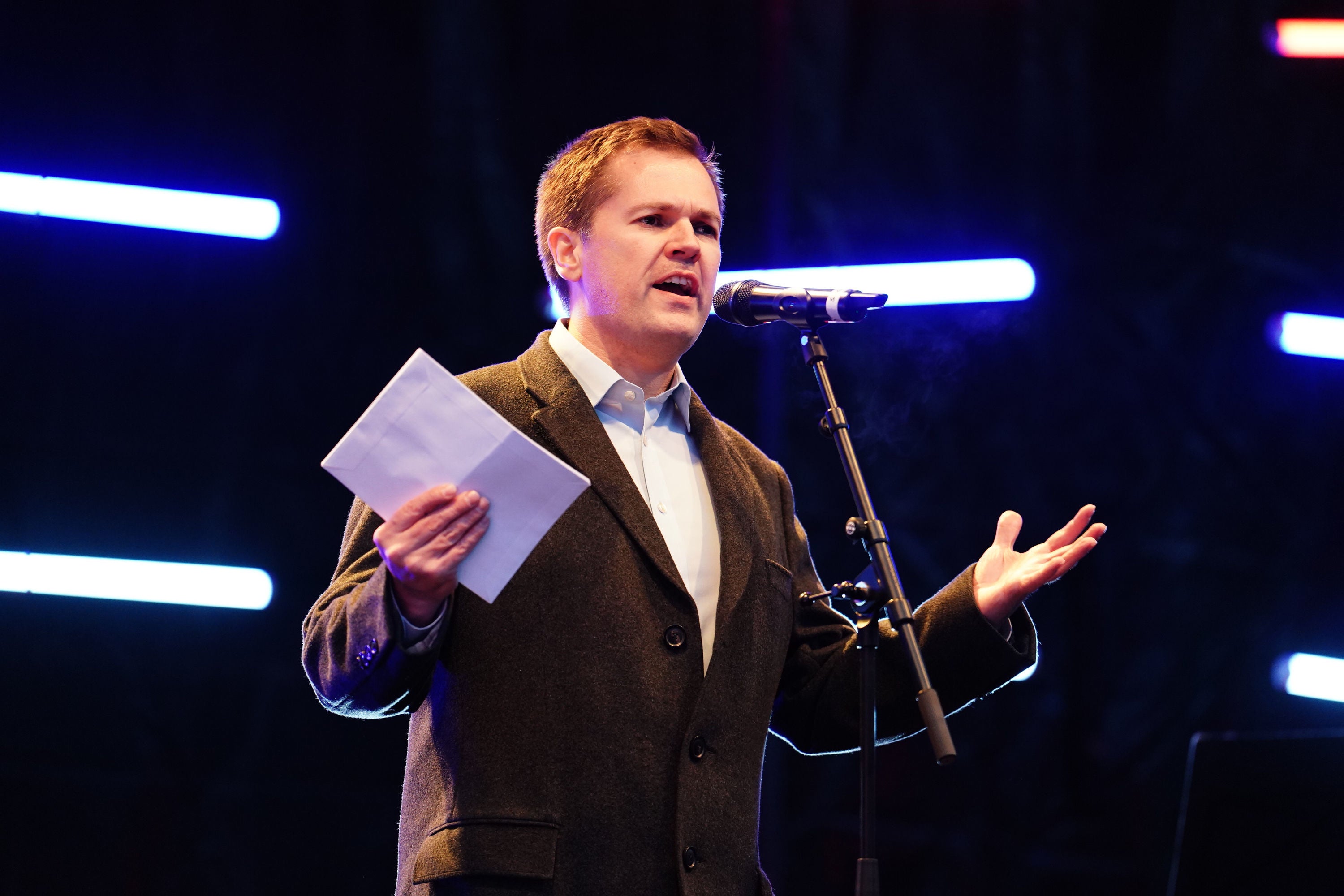
The march came the day after tens of thousands of people gathered on Saturday for the latest pro-Palestinian demonstration in the capital, demanding a permanent ceasefire in Gaza. There were 18 arrests over the course of the day for a range of alleged offences, including suspicion of inciting racial hatred and suspicion of supporting a proscribed organisation.
Following Robinson’s arrest on Sunday, a Met office spokesperson said: “Officers working as part of the policing and security operation for the march against antisemitism have arrested a 40-year-old man on the Strand.
“We have been in frequent contact with the organisers of the march in recent days. They have been clear about their concerns that the man’s attendance, and that of those who were likely to accompany him, would cause fear for other participants. The same view has been voiced by others.
“As a result, he was spoken to and warned on more than one occasion that his continued presence in the area was likely to cause harassment, alarm and distress to others. He was directed to leave the area but refused to do so. We are aware that the man had suggested he was in the area as a journalist. This was not a relevant factor in his arrest.”

Join our commenting forum
Join thought-provoking conversations, follow other Independent readers and see their replies
Comments